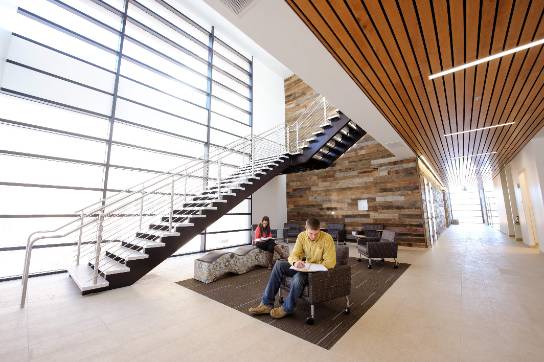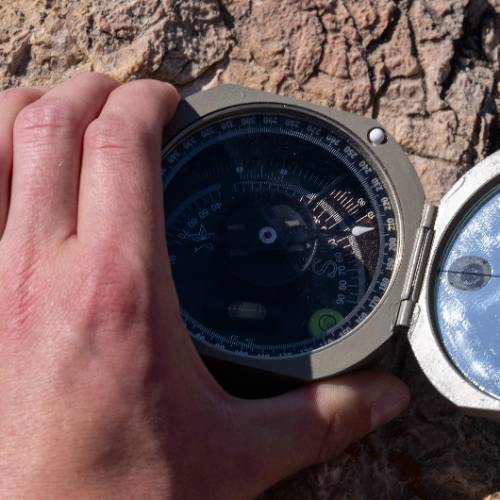FAQ & Other Resources
Award Setup

A Notice of Grant Award (NOGA) or Notice of Award (NoA) – also referred to as notice, NOGA, NGA, sponsor notice, or award letter – is a notification from a sponsor indicating that a proposal has been funded. Notice of grant awards are typically received by the Pre-Award Services, although on occasion a Principal Investigator (PI) may be notified directly. This notification may require the signature of an authorized university official. Only Pre-Award Services is authorized to accept an award on behalf of the University. In the event a Notice of Award (NoA) is sent directly to the Principal Investigator (PI), please forward it to Pre-Award Services for appropriate review and processing.
Several things can delay the setup of a new award but are not limited to the following:
- Missing data such as budget or cost-share account strings (chart string)
- Missing required signatures on Notice of Award (NoA)
- A proposal has not been entered in ROAMWyo
All PI's are granted access to PPM once they have an active award in WyoCloud.
WyoCloud– for access to grants in the WyoCloud PPM module, email Nicole Marie Widner nwidner@uwyo.edu with FAST or ospcostingreporting-team@lists.uwyo.edu
- Access to the Awards Management module is solely based on when an employee is assigned to a sponsored program/award (ex. Principal Investigator (PI) or Project Manager). Employees assigned to an award will only have access to those awards/projects within this module
- Request to add or change people associated with a Sponsored Programs Project(s) and/or Award(s) in WyoCloud
- Awards Management Module Quick Reference Guide
- New employees with a financial position (ex. accountant, business manager, director, etc.) have the option to complete a 3-hour instructor-led training to acquaint them with the financial policies and procedures at the university.
- Introduction to the Financial Management Onboarding Training
RoamWyo– for access to the RoamWyo/Cayuse electronic Research Administration system, go to the in the Forms section of InfoReady Review, or by navigating to the direct link here.
ECC– for access to the Effort Compensation Compliance reporting system, email ecc_help@uwyo.edu
- The Effort Compensation Compliance system (ECC) is the After-the-Fact effort reporting system used by the University for certifying that salaries charged or contributed to all sponsored projects are reasonable and consistent with the portion of total professional activity committed to the projects. No training is required for access. Specific positions/roles (i.e., Principal Investigator (PI), Accountant, or Business Manager) may require access and are assigned a role within ECC by the Office of Sponsored Programs.
- The subrecipient will contribute substantively to the scholarly & scientific conduct of the project and will have responsibility for decision making, and may participate in writing technical progress or final reports. The subrecipient will provide unique knowledge and expertise to the project and conduct the work independent of the University of Wyoming direct supervision. A subrecipient's performance will be measured in relation to whether the objectives of the federal grant were met. The scope of work to be performed utilizes the facilities, employees, and resources of the subrecipient.
- The contractor provides the same goods/ services to others as it will to the University of Wyoming. A contractor normally operates in a competitive environment and provides goods/services that are ancillary to the operation of the funded project.
- Fixed price contracts are invoiced or paid by a set dollar amount or fixed amount, regardless of how much is expended. If funds remain after completion of the project and all deliverable have been met, the remaining funds are administered in accordance with The University of Wyoming's Residual Fund policy.
- In cost reimbursable contracts, the University of Wyoming can only be reimbursed for actual expenses incurred during the project life.
- Below is a link to a decision tree provided by the UW Office of Industry and Strategic Partnerships that will help you navigate these differences.
- Gift vs. Sponsored Project Decision Tree
The Office of Sponsored Programs (OSP) will need to know all budget categories if not provided with original award documentation. OSP will also need to know the fund class, fund source, and organization that will be used to fund the cost-share.
If more than one source will be used, OSP will need to know all sources and the amounts that will be funded from each source.
- Visit Chart of Accounts for the most recent fund class, fund source, and organization charts
Compliance - Financial Management

Cost sharing represents that portion of the total project costs not borne by the Sponsor. Cost sharing is typically in the form of actual cash expenditure of funds. For additional guidance on Federal regulations please see the link to the OMB Uniform Administrative Requirements, Cost Principles, and Audit Requirements for Federal Awards.
The Office of Management and Budget (OMB) issued a clarification memo in 2001 that stated "most Federally-funded research programs should have some level of committed faculty (or senior researcher) effort, paid or unpaid by the Federal government." In addition, The National Institutes of Health (NIH) Grants Policy Statement notes that "...'zero percent' effort or 'as needed effort; is not an acceptable level of involvement for 'key personnel'.
These requirements do not apply to:
- Equipment/instrumentation awards
- Dissertation support, training grants or other awards intended to be student augmentation; and travel awards
Summer salary is defined as any compensation paid during the summer period to a faculty member in excess of his or her academic-year salary. The summer period is defined to be the period outside Institutional Base Salary of the academic year appointment.
HCM only accounts for accruals at an institutional level; it does not feed down to individual account strings. The amount of salary paid is what is provided in the payroll feed to WyoCloud each month (annual salary/12) instead of what is earned (annual salary/9). As such, AY faculty accrued earnings must be accounted for manually in order to fully recoup costs of effort provided by faculty on research. Plus, summer base-pay paychecks have no effort associated with them for the summer months, so we cannot charge sponsored projects base-pay in June, July, or August.
Typically payroll data is loaded into WyoCloud- PPM at the end of the each calendar month. If Payroll data has not been uploaded into WyoCloud-PPM, then the Payroll Expenditures without Fringe report will not match PPM (Manage Project Costs).
An expenditure correction is an after-the-fact reallocation of an expense, either salary or non-salary costs, associated with a sponsored project after the expense was initially charged to another sponsored program or non-sponsored project. All expenditure corrections should be made within 90 days of the original charge.
A late expenditure correction is a correction made more than 90 days from the date of the original charge. Late expenditure corrections and salary expenditure corrections made after effort certification are high risk, should be the exception, and require the approval of the Office of Sponsored Programs (OSP) Manager of Post-Award Services or the OSP Senior Director.
The award terms and sponsor regulations generally provide guidance regarding the payment of tuition. However, if both documents are silent on the treatment of tuition, Uniform Guidance (UG) is followed.
There are two instances under the UG when tuition is allowed for graduate student
on a federal award:
1. When the sponsor specifically allows tuition charges on the award and the purpose
of the federal award is to provide training to selected participants (e.g., Training
Grants or Fellowships)-2 CFR 200.466
or
2. The recipient institution pays tuition as a fringe benefit for a graduate student
holding a Graduate Student Appointment- 2 CFR 200.431(j)
Allowable tuition is pro-rated based on the student’s level of effort. Example, if
a graduate student’s effort was allocated 50/50 on two awards, then the tuition cost
would also be allocated 50/50 on those same two awards. Fees are generally not allowed,
except on certain fellowships or directly related to the project.
When certain meals are an integral and necessary part of a conference (e.g., working meals where business is transacted), grant funds may be used for such meals.
Costs of entertainment, amusement, diversion and social activities and any costs directly associated with such costs are unallowable.
If the notice of award does not include any spending restrictions on alcohol at business meetings and does not have a clause or language to follow federal guidance we are able to charge the non-federal award for alcohol. *Note - must have business purpose.
Participant support costs are direct costs for items such as stipends, subsistence allowances, travel allowances and registration fees paid to or on behalf of participants or trainees in connection with sponsor-funded meetings, conferences, symposia or training projects. Uniform Guidance -§200.75 clarifies that employees cannot be participants.
According to the Uniform Guidance- §200.456, participant support costs are allowable on an award with sponsor prior approval. Example, if included in a sponsor Request for Proposal (RFP)/funding announcement, or specifically identified in the award document.
Indirect costs, also known as "facilities and administrative (F&A)" or "overhead" costs, are project-related expenses that cannot be identified readily and specifically to a particular sponsored project, e.g., the costs of heat and air conditioning, electricity, building maintenance, security, libraries, administrative services, etc. Accurately attributing each of these costs to each sponsored project would be very difficult. Nevertheless, indirect costs are real costs to the university and the government recognizes the university's right to claim them as expenses related to sponsored projects.
To this end, the university and the federal government negotiate rates for indirect cost reimbursement based on a.) The type of work being done (research, education, public service/outreach) and b.) whether the majority of the work is being done on- or off-campus, with “off-campus” defined as facilities not owned or leased by the university. To be classified as off-campus, more than 2/3 of the project work should be occurring at off-campus location(s).
Please view detailed information on the Current Indirect Rates.
Calculating indirect costs
Depending upon the sponsor, the direct cost base may be either the simple total of all direct costs in the budget (Total Direct Costs or TDC), or the “modified” total direct costs (MTDC), which is TDC minus the total of all items in the budget that do not bear overhead. Most federal sponsors use MTDC.
On budgets for federal sponsors, subtract the following line items from the direct-cost base to arrive at MTDC, per University of Wyoming’s negotiated rate agreement:
Equipment (> than $5,000 and with a useful life of more than one year); capital expenditures; charges for patient care; student tuition remission; rental costs of off-site facilities; scholarships and fellowships; that portion of individual subcontracts over $25K; participant support costs; and any other agency-specific exclusions.
Example 1 (TDC):
A PI is submitting a proposal for a one-year project starting 1/1/26 with direct costs of $150,000 to the XYZ Foundation. The sponsor limits indirect costs to 15% of TDC. The Total Project Cost is:
$150,000 Total Direct Cost (TDC) base
+22,500 15.0% indirect costs on TDC base
$172,500 Total Project Cost (TDC + indirect cost)
Example 2 (MTDC):
A PI is submitting another proposal to the NSF for the same time period and the same direct-cost amount. Of the $150,000, $40,000 is for a subcontract to CSU. Here, the Total Project Cost is:
$150,000 Total Direct Costs (TDC) base
-15,000 Less $15,000 subcontract cost (1st 25,000 of subcontract is subject to indirect costs)
$135,000 Modified Total Direct Costs (MTDC) base
$61,020 45.2% indirect rate on MTDC base
$211,020 Total Project Cost (TDC + indirect)
Funds provided for participant support may not be used by grantees for other categories of expense without the specific prior written approval of the cognizant Program Officer. Therefore, awardee organizations must account for participant support costs separately.
The Fly America Act is a federal regulation that requires that any foreign air travel funded by the federal government be booked with U.S. flag air carriers, regardless of cost and convenience. The Fly America Act Regulation is applied to all travel funded directly by a federal award or a federal flow-through award.
In general, all airlines based in the United States qualify. Specifically, a U.S. flag air carrier is one that holds a certificate under Section 401 of the Federal Aviation Act of 1958. The following site can help you determine where a particular airline is based- Airline Codes Web Site In addition, travelers are allowed to fly on Code Share Flights operated by foreign carriers. A flight qualifies if a ticket is purchased from a U.S. flag carrier but the aircraft is operated by a foreign airline. Your ticket will identify the U.S. carrier in this case.
The traveler is considered to be on a code share flight if he/she purchases a ticket from one carrier but flies on an aircraft owned by another airline. This would be a ticket that is issued by a U.S. air carrier that states “U.S. air carrier flight XXXX operated by foreign air carrier.” There may be a list of code share partners on the U.S. air carrier’s website; however, not all flights on those partner airlines are operated under code share agreements. Only code share flights booked properly through the U.S. carrier are allowable.
The following are exceptions to the regulation: -When there is an Open Skies Agreement approved by the U.S. Department of Transportation as meeting the requirements of the Fly America Act; -When a U.S. air carrier is not available; -When the use of a U.S. air carrier will extend the travel time by 24 hours or more; - When the flight time from the original destination is less than 3 hours and the use of a U.S, flight will double the travel time.
Open skies provides an exception to the Fly America Act requirement, in limited circumstances, where a bilateral or multilateral air transport agreement is present between the United States Government and the government of a foreign country. Open Skies Agreements are approved by the U.S. Department of Transportation. Open Skies Agreements currently in effect are found on the U.S. Department of Transportation website.
If the grant is a teaching award they can be paid on the project. Otherwise, their assignment should be corrected to accurately reflect research responsibilities (GRA).
Cash Management

If the check is for an internal departmental account (not a grant), then it is processed by the department through the Cashier’s Office in Knight Hall.
If the check is for a grant, then it is processed by the Office of Sponsored Programs (OSP) office in Dept. 4330, 534 Hill Hall.
You can mail the check to our office by regular or campus mail to the attention of Melanie Austin, or you can put it in our drop box that is on the wall outside of the door of room 534, or you can deliver it to Melanie Austin at the front desk in room 534 Hill Hall.
For information regarding deposits not related to grants you can find more details on the Cashier's Office Website.
Email OSP_AR@uwyo.edu with all grant/contract payment related inquiries.
The Office of Sponsored Programs (OSP) is responsible for invoicing sponsors per invoicing frequency noted in the award document or as agreed upon. Sometimes OSP needs department input to complete/submit an invoice. For example, if detailed backup information is required by the sponsor, OSP works with the department to compile the information; also if billing is based on milestones, OSP relies on the department to confirm the deliverable has been completed and the invoice can be submitted.
If a sponsor register concern over not receiving an invoice, please forward their message to your Office of Sponsored Programs (OSP) Coordinator and the Coordinator will follow up with the sponsor. Most likely there is a timing issue or billing address/contact in the award document is incorrect or has changed.
If the sponsor reaches out directly to the department for supporting detail on a particular invoice, the department may respond directly to the sponsor and copy their Office of Sponsored Programs (OSP) Coordinator. Otherwise, if department is unsure of what the sponsor is requesting, forward the email directly to your OSP Coordinator.
As of May 1, 2021 any invoice that has been submitted to the OSP Subcontract invoice email (uw_subaward_invoices@uwyo.edu) will be routed to the PO Requestor and Payment Services.
The PO Requestor will need to enter the receipt into WyoCloud. The requestor does not have to email the invoice to Payment Services since the Office of Sponsored Programs (OSP) will have already sent a copy.
Payment Services will enter the invoice in WyoCloud to initiate the approval routing process. The approval process will route to the Project Manager (PM) as well as the Principal Investigator (PI) for approval.
The PM will check to ensure the invoice is consistent with the subaward terms and conditions. The PI will confirm that the invoice is consistent with the work that is being completed. *Note if the Project Manager and Principal Investigator are one and the same, they will only receive one request to approve.
Once all steps have been completed the payment will be issued to the sub-recipient.
Invoices received by the department directly from the sub-recipient will still need to be emailed to Accounts Payable for processing.
When a sponsor discovers an unallowable expense on an invoice, the department is responsible to remove the unallowable charge from the award/project in WyoCloud Project Portfolio Management (PPM). The removal of the charge creates a credit on the next invoice or if the sponsor agrees to the submission of a revised invoice, the Office of Sponsored Programs (OSP) will revise the previous invoice send to the sponsor, removing the unallowable expense and resubmit for payment.
Financial Reporting

The Office of Sponsored Programs (OSP) will submit all financial reports and invoices to the sponsor based on the guidelines of each award agreement.
The Office of Sponsored Programs (OSP) has created a step by step guide for this process.
Award Closeout

Monthly financial reports are used by the sponsor for planning purposes to ensure your spending rate is on schedule with the proposed budget and reflects activity throughout the period of performance.
A final financial report is submitted by the Office of Sponsored Programs (OSP) to summarize cumulative expenses per cost category and, in some instances, validate final payment from the sponsor.
The research office will review the current agreement that is in place and will work with the Principal Investigator (PI) and Sponsor to request a No Cost Extension (NCE).
Record Retention

UW policy is to retain records related to Federal grant files for 3 years, per Uniform Guidance §200.334 and records related to Non-Federal grant files for 10 years after completion. The Office of Sponsored Programs (OSP) keeps files based on UW fiscal years. For example, with the new policy we would shred FY19 Federal files and FY12 Non-Federal files in FY22.
Other UW Resources

- Pre-Award Services Website
- Externally Funded Award Statistics (Statistics)
- Guidelines for Requesting a Pre-Award Spending Project
- Procedure to Request a Reduction or Waiver of Indirect Costs
- Request to Create a Pre-Award Spending Project
Helpful External Links

Uniform Guidance- Subpart 200 of the The Uniform Administrative Requirements, Cost Principles, and Audit Requirements for Federal Awards became effective December 26, 2014. This Guidance replaces OMB Circulars A-21, A-110, and A-133.
Uniform Guidance is divided into the following sections:
- Subpart A: Acronyms and Definitions
- Subpart B: General Provisions
- Subpart C: Pre-Federal Award Requirements and Contents of Federal Awards (previously previously circular A-110)
- Subpart D: Standards for Financial and Program Management (previously circular A-110)
- Subpart E: Cost Principles (previously circular A-21)
- Subpart F: Audit Requirements (previously contained in A-133)

